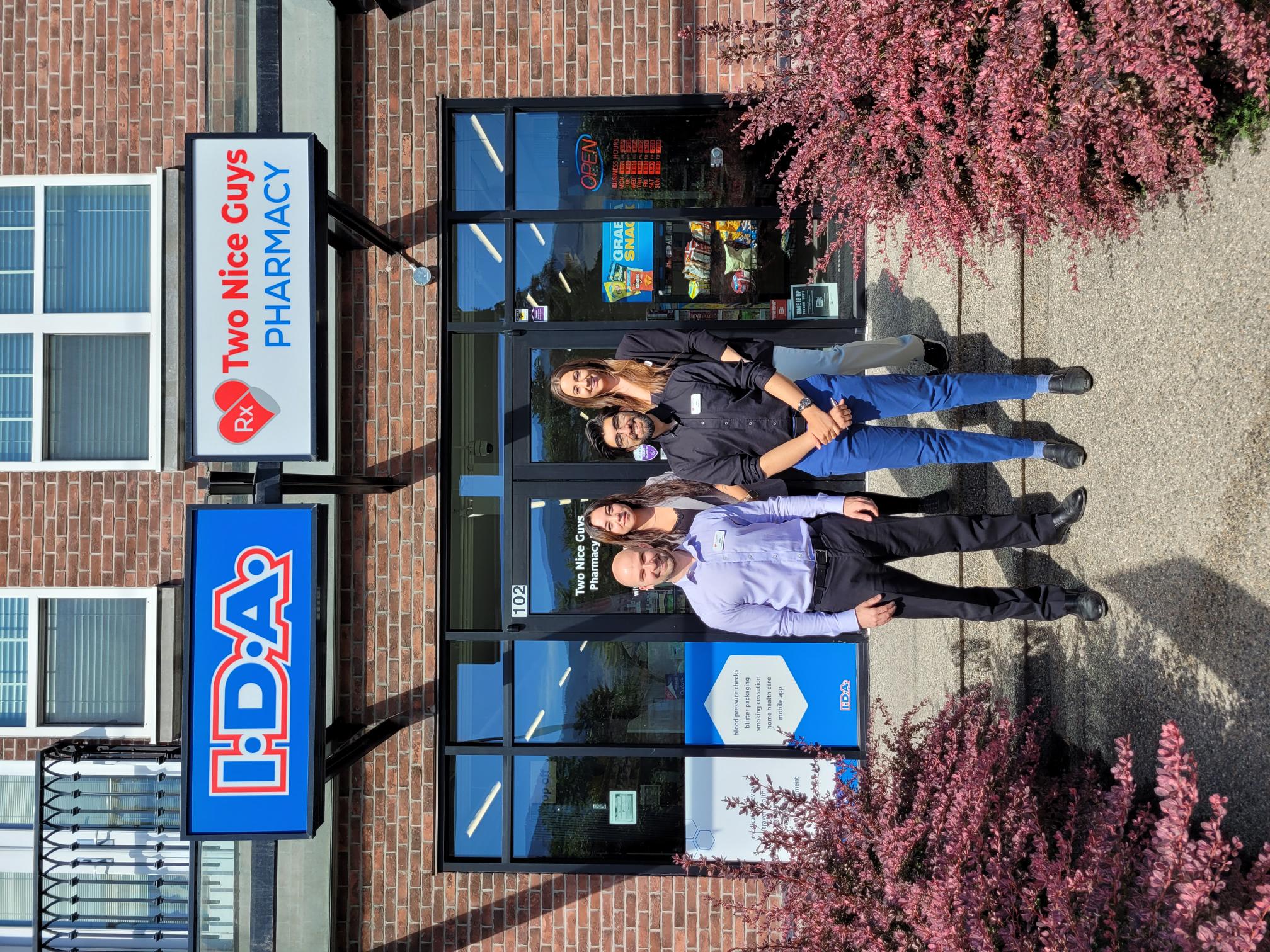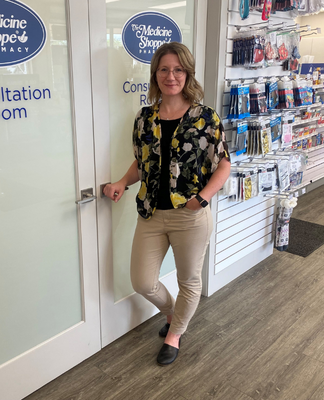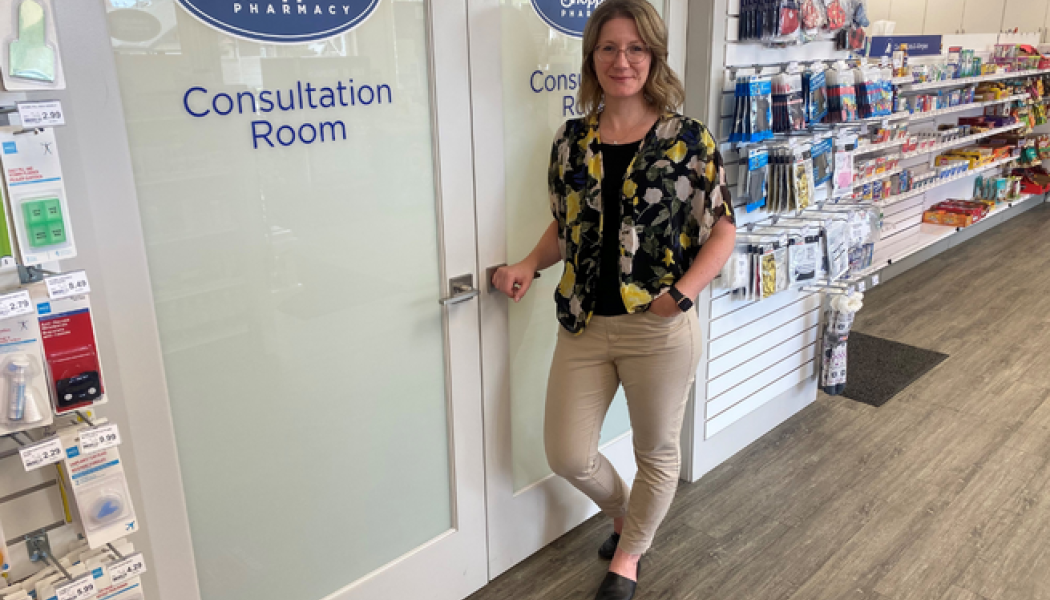Jodi Cunningham, pharmacist and owner of Medicine Shoppe Vernon
It takes a team to combat one public health emergency – let alone two.
Pharmacist Justin Dovale and staff at Kelowna’s Two Nice Guys Pharmacy are part of that team.
The pharmacy opened in March 2021, in the middle of two public health emergencies. While people were being told to isolate due to COVID-19, many clients at risk of poisoning from the illicit drug supply needed Opioid Agonist Treatment or pharmaceutical alternative medications, which can require in-person appointments at a pharmacy.
Opioid Agonist Treatment, or OAT, is a first-line treatment for opioid use disorder. The medications, such as methadone, suboxone and kadian, are playing an important role in the response to the toxic drug crisis. Within Interior Health, the number of clients on OAT has risen from approximately 2,000 in 2015 to more than 4,000 in 2022.
“While we were telling people to isolate, drug dealers were delivering,” recalls Justin, adding he saw an opportunity to make a difference. “We started delivering OAT medications for those clients in isolation. Over time we have gotten to know the OAT providers and received many referrals. In a little over a year we’ve seen remarkable changes in terms of the quality of life for many of these folks.”
Justin says people are very motivated to make positive changes in their lives when they are on OAT.
“They don’t need to constantly worry about where they will get drugs. It allows them to focus on securing food and shelter. From there, people may pursue employment and safer, more permanent housing.”

The fact that the pharmacists see OAT clients on a daily basis allows them to develop good relationships and a high degree of trust.
“We also do a lot of outreach and deliveries, so we are meeting people in their homes, meeting room-mates and families. People share their most intimate details, early traumas and how they became dependent on opioids,” Justin says.
Jodi Cunningham, pharmacist and owner of Medicine Shoppe Vernon, agrees.
Jodi and her team strive to be inclusive and supportive of everyone who walks through their door. Medicine Shoppe was the first pharmacy in the region to provide OAT delivery to shelters and supportive housing at the height of COVID-19.
When she was originally contacted by Interior Health about delivery of OAT medications, Jodi realized she had a chance to make a difference for people who face tremendous barriers and often insurmountable stigma.
“Delivery has enabled access for patients who otherwise struggle to remain on treatment,” she says, adding that there are stringent rules around the medications, to the point that it can be a deterrent for some pharmacists to handle the treatment option.
“But access to OAT and harm reduction medications is crucial for clients to be successfully maintained on treatment and have an opportunity to pursue stability in other areas of their life once they are not reliant on the toxic drug supply,” she says. “Many people do not appreciate what these clients are up against. The barriers are much more than most people see or comprehend. Because we’ve done the outreach and delivery piece, we see the consequences of the toxic drug supply first hand.
“We know if we don’t go over and above to ensure they have the medications they need, and at therapeutic doses, we are further endangering them when we have the ability to help keep them safe. We owe them better than that. If they are missing doses we need to work with patients and clinicians to find out why and how we can support them. That’s our responsibility.”
Jodi says it’s incredibly gratifying to see people become stable and succeed on OAT. Provision of medications is really only a small part of the role pharmacists can have; support, education and encouragement can make a significant difference in patient outcomes.
“We have seen patients once unable to maintain housing become stably housed, gainfully employed and also volunteering to give back to peers and the community. It’s been very rewarding.”















